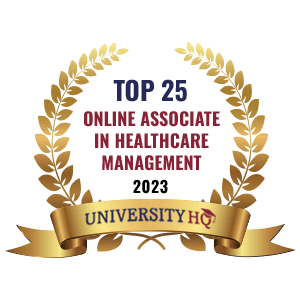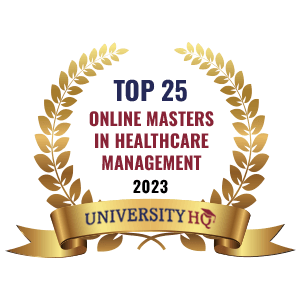Get Matched With Healthcare Management Colleges
What is Healthcare Management?
Healthcare management refers to the practice of planning, organizing, directing, and coordinating healthcare services provided to individuals and communities. Healthcare managers work in hospitals, clinics, nursing homes, and other healthcare organizations to provide patients with top-quality care, while managing finances, human resources, and healthcare policies as part of this service.
In Nebraska, health administration is an essential aspect of healthcare delivery, as it is elsewhere. Healthcare organizations in the state such as CHI Health, Methodist Health System, and Bryan Health, require skilled healthcare managers to oversee their operations. In addition, the state has a strong healthcare education system, including colleges and universities that offer healthcare management programs.
If you are interested in pursuing a career in health administration, Nebraska has several institutions that offer relevant programs, including the University of Nebraska Medical Center and Bellevue University. Most of these programs cover healthcare management principles, healthcare marketing, human resources management, healthcare informatics, and healthcare law.
Healthcare management professionals in Nebraska should experience an excellent job outlook in the coming years. According to projections by the US Bureau of Labor Statistics (BLS), health administration jobs will grow 18% from 2020-2030 and can expect an annual median salary of $102,070, which exceeds the national average.
Healthcare management in Nebraska is an essential aspect of its healthcare system, given its increasing demand. Healthcare managers play a vital role in ensuring healthcare organizations in Nebraska operate efficiently and provide quality patient care. If health administration is your passion and you possess an interest in management, Nebraska could offer ample opportunity for growth in this field.

Compare Popular Online Healthcare Management Programs
Online Healthcare Management Education in Nebraska
Healthcare managers are individuals responsible for overseeing the planning, coordination, and management of healthcare services in various healthcare facilities such as hospitals, clinics, nursing homes, and other healthcare institutions. Their responsibilities will include overseeing daily operations of an organization to ensure quality patient care delivery while managing budgets effectively and implementing policies and procedures efficiently.
Healthcare managers' primary responsibility is to ensure their organization runs efficiently and effectively, as well as being knowledgeable of healthcare policies, regulations, and laws to ensure compliance. In addition, they must be strategic thinkers with excellent leadership skills who can motivate staff members.
Healthcare managers play an essential role in overseeing both the day-to-day operations of a healthcare organization and devising long-term strategies for their facility. This may involve creating new programs, or expanding services while introducing cutting-edge technology into patient care delivery.
In conclusion, healthcare managers play an essential role in ensuring the delivery of quality patient care and the smooth and efficient operation of healthcare organizations. They must be knowledgeable about healthcare policies and regulations, possess excellent leadership skills, and be strategic thinkers to succeed in this role. If you are interested in a healthcare management career, you should consider pursuing a degree in health administration or business administration and gaining experience in a healthcare setting.
Online Associate Degree in Healthcare Management (AS)

Healthcare management colleges, in some cases, offer an associate degree in health administration to those who are interested in getting started on their careers right away and aren’t afraid to earn their experience on the job rather than continuing in the classroom. These programs are designed to help students develop the knowledge and skills required to manage healthcare organizations effectively. The curriculum covers various topics such as healthcare operations, finance, marketing, human resources, as well as ethics and legal issues.
Students who enroll in these programs typically learn about the challenges facing healthcare organizations today, such as increasing costs and changing regulations. They should also acquire practical skills that will enable them to address these challenges successfully. Upon graduation, students are well prepared for entry-level positions in healthcare management or can further their studies by pursuing a bachelor's.
Overall, an associate degree in health administration is an excellent choice for individuals who want to work in this rapidly growing field, though you should expect to earn at least a couple years of experience before you can move into higher-level roles. of healthcare administration. This degree provides a strong foundation for a successful career, while also offering opportunities for advancement through further education and experience.
Online Bachelors Degree in Healthcare Management (BS)

Healthcare management is a rapidly growing field that encompasses a wide range of roles and responsibilities. With the healthcare industry constantly evolving, there is an increasing need for professionals who can effectively manage healthcare organizations and facilities. Colleges across the country offer bachelor's programs in health administration, which provide students with a comprehensive understanding of the industry. These programs typically cover topics such as healthcare law, accounting and finance, human resources management, strategic planning, and quality improvement.
Graduates of bachelor's healthcare administration programs are well-equipped to pursue careers in various settings within the healthcare industry. Some may work in hospitals or clinics as administrators or managers, while others may work for insurance companies or pharmaceutical companies. Regardless of their chosen career path, these professionals play a crucial role in ensuring that patients receive high-quality care while also maintaining efficient operations within their organizations.
Find Your Online Healthcare Management Program
Online Masters Degree in Healthcare Management (MS)

Health administration is a rapidly growing field that offers numerous career opportunities for individuals who have completed a master's degree. These degree programs prepare students to work in various healthcare settings including hospitals, clinics, government agencies, non-profit organizations, etc. Students at this level will learn about the business side of healthcare and develop the skills necessary to manage healthcare facilities efficiently.
There are several colleges and universities offering master's degree programs in healthcare management across the United States. The curriculum typically covers topics such as healthcare policy and regulations, financial management, strategic planning, quality improvement initiatives, and leadership skills. Some programs also offer specializations in areas such as hospital administration or long-term care management.
Graduates with a master's degree in healthcare administration can pursue careers as hospital administrators, health information managers, clinical managers, health services managers, or industry executives. The demand for skilled healthcare professionals is expected to continue growing as the US population continues to age and require increased medical attention. Therefore, pursuing this degree can be an excellent investment for those seeking job stability within the ever-growing world of medicine.
Online PhD Degree in Healthcare Management (PhD)
A PhD in healthcare management is a rigorous program that prepares students for leadership roles in the healthcare industry. These degrees are designed for individuals who want to advance their careers and make an impact on the healthcare system. The curriculum for these programs typically includes courses in strategic planning, financial management, policy analysis, quality improvement, and organizational behavior.
There are several colleges and universities offering PhD programs in healthcare administration across the US. Students can choose from traditional classroom-based programs or online options. Some of these institutions also offer dual-degree options, such as a PhD/MBA or a PhD/MD, which can provide students with additional skills and knowledge to succeed in their field.
Graduates of a PhD program in healthcare management should be well-equipped to take on high-level leadership roles in hospitals, health systems, government agencies, insurance companies, pharmaceutical firms, or even academic institutions. They can use their expertise to improve patient care outcomes while ensuring that healthcare organizations operate efficiently and effectively. Pursuing a doctoral degree in this field requires dedication and commitment but offers excellent career opportunities upon completion.
Online Healthcare Management Certifications
Healthcare management certifications are designed to enhance the skills and knowledge of professionals working in various healthcare settings. Individuals who hold these certificates are recognized for their proficiency in areas such as healthcare finance, quality improvement, patient safety, and leadership. Healthcare administration colleges offer certificate programs that can be completed in a few months to a year.
In addition to certificate programs, many healthcare management colleges also offer degree programs at the undergraduate and graduate levels. These degrees prepare students for careers in hospital administration, health information management, healthcare consulting, and other related fields. Courses typically cover topics such as healthcare policy and law, financial management, strategic planning, and organizational behavior.
Earning a certification or degree from a reputable healthcare management college can open up many career opportunities within the field of healthcare administration. Graduates with these credentials are prepared to take on leadership roles and make significant contributions to improving the delivery of care in hospitals, clinics, long-term care facilities, insurance companies, or government agencies.
Become a Healthcare Manager in Nebraska
If you're interested in working in the healthcare industry, but prefer a management role, becoming a healthcare manager might be the perfect career path for you. Healthcare managers oversee the operations of healthcare facilities, ensuring that they provide efficient and effective services. Here are the steps to becoming a healthcare manager in Nebraska.
-
Step 1: Obtain a Bachelor's Degree in Healthcare Management
Healthcare management education is the initial step to becoming a healthcare manager; though you might also be able to break into this field with a degree in general business administration, you’ll require more experience to move up in the field. Most programs will cover topics like healthcare law, economics, finance, marketing, and administration - providing you can obtain one either from a university in Nebraska or online.
-
Step 2: Gain Experience in the Healthcare Industry
Gaining experience working in the healthcare industry is crucial to becoming a healthcare manager. Many managers begin their careers at entry-level positions before progressing through managerial roles. Some Nebraska healthcare facilities also offer internship or volunteer programs, which can give you invaluable exposure in this sector.
-
Obtain a Master's Degree in Healthcare Management or Business Administration
Obtaining a master's in healthcare management or an MBA is recommended for healthcare managers who aspire to higher-level positions. These degrees will provide you with advanced knowledge in the field of healthcare management and will prepare you for leadership roles.
-
Step 4: Become Licensed or Certified
Even though certification in healthcare management isn't mandatory in Nebraska, getting it can boost your career opportunities significantly. The National Association of Healthcare Management offers various certifications, such as Certified Healthcare Executive (CHE) and Fellow of American College of Healthcare Executives (FACHE).
-
Step 5: Apply for Healthcare Management Jobs in Nebraska
After obtaining the necessary education, experience, and certification, it's time to start applying for healthcare management jobs in Nebraska. You can search for job openings online or reach out to healthcare facilities that you're interested in working for directly.
Find Online Healthcare Management Programs
What Can I Do with a Bachelor's in Healthcare Management?
A bachelor's in healthcare management can prepare graduates for a variety of career paths. With this degree, individuals can pursue positions in healthcare administration, health policy and advocacy, hospital or clinic management, and even healthcare consulting. In the field of healthcare administration, graduates can work as department managers or directors within hospitals or other healthcare organizations.
A career in health policy and advocacy involves working to shape public policies related to healthcare. This may include working for government agencies or non-profit organizations that focus on improving access to care for underserved populations. Hospital and clinic management roles involve overseeing the day-to-day operations of medical facilities, ensuring quality patient care is provided while staying within budget constraints.
Lastly, those with a bachelor's in this field may also consider careers in healthcare consulting. This role involves helping organizations identify areas where they can improve their processes and maximize efficiency, all while maintaining high-quality patient care standards. Overall, there are many opportunities available for graduates with a bachelor's in healthcare management to make an impact within the ever-evolving world of healthcare.
Potential Careers for Healthcare Management Graduates
- Operations Assistant:
Operations assistants play an essential role in providing administrative support to their company's operations team and ensuring daily operations run efficiently and smoothly.
Necessary Requirements:
- Bachelor's degree in business administration or a related field
- Experience in an administrative role, preferably in operations or logistics
- Excellent communication and organizational skills
- Proficiency in using Microsoft Office tools such as Excel, Word, and PowerPoint
- Ability to work independently and as part of a team
- Strong attention to detail and problem-solving skills
Estimated Salary
- The median annual wage for medical secretaries and administrative assistants in the US in 2021 was $41,260
- The mean annual wage for medical secretaries and administrative assistants in Nebraska is $59,840
- Finance Manager:
Healthcare finance managers are responsible for overseeing financial operations within a healthcare organization, ensuring compliance with regulatory requirements, and providing financial analysis and insights to inform decision-making.
Necessary Requirements:
- Bachelor's degree in finance, accounting, or related field; Master's degree preferred
- 5+ years of experience in healthcare finance or related field
- Knowledge of healthcare reimbursement systems and regulations
- Strong analytical skills and attention to detail
- Excellent communication skills and ability to work collaboratively across departments
- Experience with financial forecasting and modeling software
Estimated Salary
- The median annual wage for financial managers in the US in 2021 was $131,710
- The mean annual wage for financial managers in Nebraska is $133,170
- Healthcare Administrator:
Healthcare administrators are charged with overseeing the daily operations of healthcare facilities. Their duties involve overseeing staffing levels, budget management, and patient care to ensure smooth operations of the facility.
Necessary Requirements:
- Bachelor's degree in healthcare administration or a related field
- Bachelor's degree in healthcare administration or a related field
- Excellent communication skills, both verbal and written
- Knowledge of healthcare regulations and compliance requirements
- Experience in a healthcare setting, preferably in a management role
Estimated Salary
- The median annual wage for medical and health services managers in the US in 2021 was $101,340
- The mean annual wage for medical and health services managers in Nebraska is $113,110
- Chief Compliance Officer:
As chief compliance officer, your role will be to ensure the company complies with all laws, regulations, and internal policies applicable to them. Working closely with senior executives and department heads, you will develop and implement effective compliance strategies and programs.
Necessary Requirements:
- Bachelor's degree in business, law, or a related field
- At least 10 years of experience in a compliance role, preferably in a regulated industry
- Strong knowledge of relevant laws and regulations
- Excellent communication skills
- Leadership experience, with the ability to manage a team of compliance professionals
- Ability to think strategically and develop effective solutions to complex problems
Estimated Salary
- The median annual wage for compliance officers in the US in 2021 was $76,980, but chief executives earned $246,440
- The mean annual wage for compliance officers in Nebraska is $69,400, but chief executives earn $232,210
- Program Director:
A program director's primary function in an organization is overseeing and managing the programs within it to ensure they align with its overall mission and goals while being executed effectively and efficiently.
Necessary Requirements:
- Bachelor's degree in a relevant field (such as business, non-profit management, or public administration)
- At least 5 years of experience in program management or a related field
- Strong leadership skills and the ability to manage a team effectively
- Excellent communication skills, both written and verbal
- Experience with budgeting and financial management
- Knowledge of relevant regulations and policies in the field
Estimated Salary
- The median annual wage for social and community service managers in the US in 2021 was $74,000 and project management specialists earn $95,370
- The mean annual wage for social and community service managers in Nebraska is $78,800 and project management specialists earn $84,110
- Hospital Administrator:
A hospital administrator is responsible for overseeing the daily operations of a hospital or healthcare facility. This includes managing staff, ensuring patient satisfaction, maintaining financial stability, and adhering to healthcare regulations.
Necessary Requirements:
- Bachelor's degree in healthcare administration or related field
- 5+ years of experience in hospital administration or healthcare management
- Knowledge of healthcare laws and regulations
- Strong leadership skills and ability to manage a team effectively/li>
- Excellent communication and interpersonal skills
- Proficiency in financial management and budgeting
- Ability to multitask and work under pressure in a fast-paced environment
Estimated Salary
- The median annual wage for medical and health services managers in the US in 2021 was $101,340
- The mean annual wage for medical and health services managers in Nebraska is $113,110
- Pharmaceutical Quality Manager:
Pharmaceutical quality managers are responsible for assuring the quality and safety of pharmaceutical products. They oversee all aspects of quality control from development through manufacturing to ensure compliance with regulations and industry standards.
Necessary Requirements:
- Bachelor's degree in pharmaceutical science, chemistry, or a related field
- At least 5 years of experience in pharmaceutical quality control or quality assurance
- Knowledge of FDA regulations and guidelines
- Strong analytical skills and attention to detail
- Excellent communication and leadership abilities
Estimated Salary
- The median annual wage for quality control inspectors in the US in 2021 was $38,580, but pharmacy technicians earn $37,790 and pharmacists earn $132,750
- No available mean annual wage for quality control inspectors in Nebraska, but pharmacy technicians earn $37,610 and pharmacists earn $121,340
